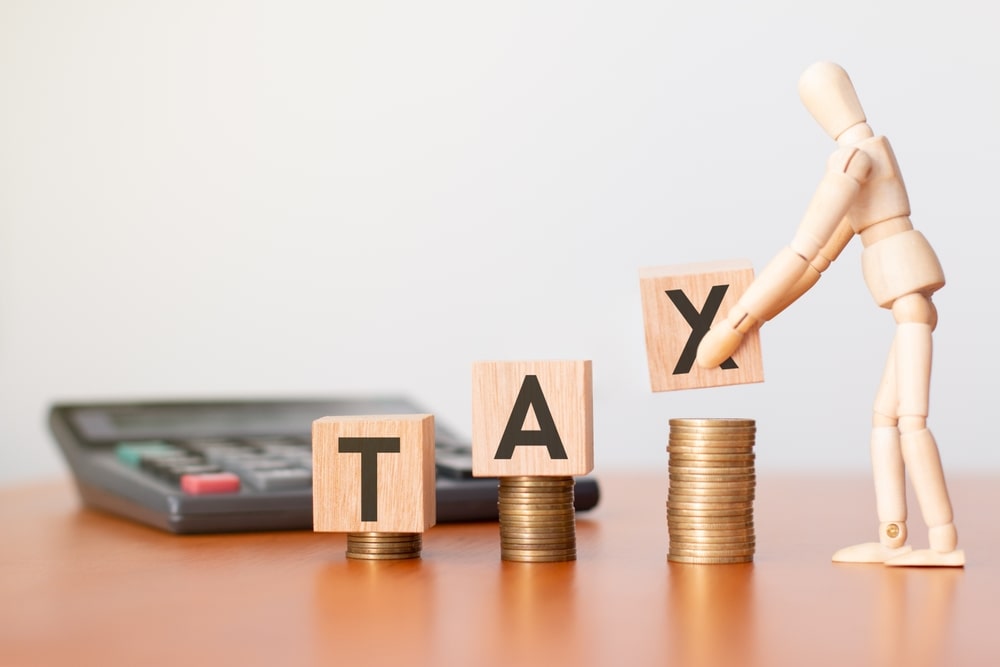
Is IRS Debt Public Record? What Tax Liens Mean for You
When Does It Become Public: Is IRS Debt Public Record
Is IRS debt public record? In most cases, it’s not. The IRS generally keeps your tax debt private unless it files a formal public lien. However, if you owe back taxes and don’t pay or settle your balance, the IRS may take steps that could expose your debt to public databases and affect your financial reputation. Understanding when and how this happens can help you stay protected.
When IRS Debt Remains Private
Most IRS debt starts off confidential. In fact, the IRS is bound by federal law to protect your tax information, including how much you owe.
Confidentiality of Tax Returns and Balances
The IRS keeps your returns and outstanding balances private. No one—employers, neighbors, or lenders—can simply look up your IRS debt unless the agency takes formal legal action.
IRS Communication Is Sent Privately
IRS notices and collection letters are sent directly to the taxpayer by mail. These notices are not part of any public system.
Debt Does Not Appear on Credit Reports Directly
Unpaid IRS debt doesn’t automatically show up on your credit report. However, certain enforcement actions can indirectly affect your financial record.
When IRS Debt Becomes Public Record
Although IRS debt is not initially public, it can become part of the public record if the agency files a lien.
What Is a Federal Tax Lien?
A federal tax lien is the government’s legal claim against your property when you fail to pay a tax debt. It protects the IRS’s interest in your assets—like real estate, personal property, and financial accounts.
When the IRS Files a Notice of Federal Tax Lien (NFTL)
If your tax debt exceeds a certain amount and goes unpaid, the IRS may file a Notice of Federal Tax Lien. This public notice informs creditors and the public that the government has a legal right to your property.
How Liens Become Part of Public Record Databases
Once filed, a tax lien becomes part of local and national public records. Anyone conducting a public search—such as lenders, landlords, or title companies—can view this information.
Credit Impact and Privacy Concerns
The public filing of a tax lien can create long-term consequences, even if you pay off the debt later.
IRS Debt and Credit Score Myths
It’s a common myth that tax debt always affects your credit score. In reality, unfiled liens do not appear on credit reports. However, the public lien can still be discovered in other ways.
How Lien Records Can Affect Loans and Housing
Although credit bureaus no longer report tax liens, lenders and landlords may still run public records checks. A tax lien can make it harder to:
- Secure a mortgage or refinance
- Qualify for rental housing
- Obtain business financing
Removal of Tax Liens from Credit Reports (Post-2018)
As of 2018, the three major credit bureaus—Equifax, Experian, and TransUnion—no longer include tax liens in credit reports. However, public record services still show them, especially in financial vetting.
How to Avoid Public Exposure of IRS Debt
If you want to keep your IRS issues private, it’s critical to act before the government takes legal steps.
Paying or Settling Debt Before a Lien Is Filed
If you resolve your debt through full payment, a payment plan, or an Offer in Compromise, the IRS typically won’t file a lien. Early action can keep the matter confidential.
Requesting a Lien Withdrawal
If the IRS has already filed a lien, you may qualify for a lien withdrawal once you resolve your balance. This removes the public record entirely, not just marks it as “released.”
Working With a Tax Professional to Negotiate Payment
A tax professional can help you:
- Avoid enforcement actions
- Qualify for lien relief
- Negotiate affordable payment terms before a lien is triggered
IRS Debt Can Become Public—But You Can Prevent It
So, is IRS debt public record? Not unless the IRS files a lien. By responding early to IRS notices and resolving unpaid balances proactively, you can avoid legal action that turns your tax problems into public information. Once a lien is filed, your privacy, creditworthiness, and financial reputation may be affected for years.
Get Help Managing IRS Debt Before It Goes Public
Worried about whether IRS debt is public record in your situation? Don’t wait until the IRS files a lien. At TaxDebtLawyer, we connect taxpayers with experienced legal help to resolve IRS issues discreetly and effectively. A free consultation can help you understand your options—and protect your privacy.
Frequently Asked Questions
1. Is all IRS debt made public automatically?
No. IRS debt only becomes public when the agency files a formal lien, which it may do after repeated collection attempts.
2. What is a Notice of Federal Tax Lien and how is it filed?
It’s a public document filed with your local records office stating that the IRS has a legal claim on your property due to unpaid taxes.
3. Can tax liens be seen by employers or landlords?
Yes. Anyone can search public records and see a tax lien, including lenders, employers, and rental property managers.
4. Do tax liens still show up on credit reports?
No. As of 2018, credit bureaus no longer include tax liens in consumer credit reports.
5. How can I prevent my tax debt from becoming public?
Set up a payment plan or resolve your tax debt before the IRS files a lien. Acting early is key.
Key Takeaways
- Is IRS debt public record? Not at first, but it becomes public if a lien is filed.
- A Notice of Federal Tax Lien puts your debt in public databases.
- Tax debt doesn’t appear on credit reports unless tied to a lien.
- Liens can harm your ability to get loans, jobs, or housing.
- Acting early can protect your privacy and resolve your debt confidentially.
Free Tax Case Review
If you are struggling with tax debt or have received a letter from the IRS complete the form below.Attorney Advertising. This site is a legal marketing service and does not provide legal advice. Submitting information does not create an attorney-client relationship. Results are not guaranteed.
IRS Audit
You received an audit notice from the IRS
Tax Debt Relief
You owe the IRS money and are looking for relief options
Wage Garnishment
The IRS is taking part of your wages to pay off your debt
Tax Lien
The IRS put a legal claim on your property
IRS Property Seizure
The IRS is going to take your property to pay down or pay off your tax debt
Penalty Abatement
You want to request to remove or reduce penalties assessed by IRS
Innocent Spouse Relief
Relief from joint tax debt caused by your spouse or former spouse
Tax Debt FAQ
Common facts, questions and answers about tax debt and tax debt reilef
Tax Debt Lawyer
A tax debt lawyer can help you with your tax debt problems
Recent Posts
- If I Owe the IRS But Can’t Afford to Pay: Your Relief Options
- Who Qualifies for the IRS Hardship Program: Understanding Currently Non-Collectible Status
- What Debts Qualify for the Fresh Start Program: Eligible Debt Checklist
- What Happens If You Owe the IRS More Than $25,000: Your Tax Relief Options
- IRS Tax Debt Relief Eligibility: Complete Guide to Qualifying for Tax Resolution Programs



